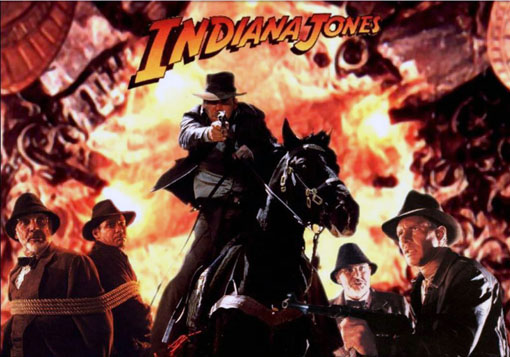There's no question here of defining in general what fiction is. The word is sufficiently general and vague to encompass just about anything and everything. What we would like to ask here is how the notion of fiction constitutes an issue for the human sciences today, and what it can contribute to unraveling the methodological impasses facing our disciplines.
Fiction versus narrative: the crisis of narratology
It's no secret that narratology, which has dominated research and even more so the teaching of literature in the last thirty years, is currently experiencing an unprecedented crisis and, no doubt, an irremediable decline, linked to the irruption of new disciplines and methods into the field of literature. The most innovative theoretical developments of recent years have not taken place in the strict domain of literary criticism, but in pragmatic linguistics, communication and image studies, for example in mediology (D. Bougnoux, R. Debray). Narratology has, in a way, frozen literary studies, and progress has taken a detour, with the rise in universities of entire departments of theater studies, film studies, cultural mediation, and even visual arts, provoking a mass exodus of students from French literature departments, deemed (often with good reason) old-fashioned and out of step with the modern world.
.

Today, therefore, there is an urgent need, if we are not to die, to reform not only the teaching of French literature, but the theoretical models from which we teach and research. These models are in a state of crisis: when research has not abandoned all theoretical models in favor of pure, self-conscious erudition, it has locked itself into a veritable narratological scholasticism, which turns into pure formal logic. We no longer study the text, but the virtuality of the text, or the way it begins, or ends (the arbitrariness of the narrative, the incipit, the closure...). Scholarly research and formal research are both incompatible with teaching, which demands content.
We would therefore like to reintroduce the content of texts, and in particular the great texts, to the heart of theoretical research. This content is not essentially "textual", and it seems to us that we have fetishized the text too much in recent years, at a time when our civilization is ceasing to be a civilization of the book and the written word to become a civilization of the image: this revolution in no way implies the death of literature, as we sometimes hear it said (Dominique Maingueneau, Contre Saint Proust: Ou la fin de la Littérature, Belin, 2006; William Marx, L'Adieu à la littérature). Literature conveys content, and a great text is quickly forgotten as a text when the fiction it carries is effective and powerful: literature opens up a world, and a world is otherwise richer than a text. When I read, I quickly forget the succession of letters, words and sentences: there's a moment when there's a qualitative leap, when the medium is forgotten. I then come into contact with fiction, and if the book is well done, I have the impression that this fiction goes far beyond the strict space of the book.
Narratology has always stood on the edge of this fictional space. When it studies the different modes of focalization in a narrative, it implicitly assumes that the narrative functions as a space in relation to which we position ourselves to adopt a certain point of view. Point of view, view of the eye that sees, and this is something quite different from reading: implicitly, narratology makes the text function as an image. Focus implies that the text produces a space of representation, which is fed by a non-textual fiction, and that this space functions as an image. But this functioning is always denied by narratology, which places narration, i.e. the linear unfolding of textual utterance, at the heart of its system of interpretation.
However, there has been a significant evolution in recent years: while the term "narration" is used less and less, the term "fiction" is flourishing just about everywhere, in books and symposia. This reflects an inflection in narratology's reflection on itself, notably around the work of Marie-Laure Ryan and, to a lesser extent, Käte Hamburger. On this subject, see Sylvie Patron's well-documented article, "Sur l'épistémologie de la théorie narrative: narratologie et autres théories du récit de fiction", Les Temps modernes, n°635-636, pp. 262-285. Sylvie Patron shows that narrative theory is "reductionist", because it always reduces the narrative to a linguistic model, i.e. to an enunciation situation: someone (the narrator) speaks to someone else (the reader). In many narratives, however, this question of enunciation is secondary, even inoperative, or at any rate unproductive.
Sylvie Patron makes the following observation.
Sylvie Patron establishes an observation, from which it seems necessary to draw consequences, starting with this one: narratology always remains upstream of the text because it doesn't enter into fiction, and if we're becoming aware of this today, it's because of the pervasiveness of the cinematic model, which places us right at the heart of fiction. It's all about the situation of enunciation, when Indiana Jones or his avatar runs between the bullets!

Making fiction the new central subject of study in the field of literary criticism therefore presupposes a major epistemological reversal: abandoning the magisterium of the text (which no longer corresponds to today's reality), abandoning the peripheral questions of the conditions of possibility of the text (questions too often scholastic), to place ourselves resolutely in the middle of the content. To study the literary text as a space of representation and, from there, as a device.
Fiction and device
Faced with the image revolution, we can treat literature in two ways. Either we set it resolutely in the past: literature is resistance to modernity, and is what has always been anti-modern (A. Compagnon, Les Antimodernes). We deny the humanist heritage (the idea of breaking with tradition), we sit on the values of the Enlightenment (the idea of social commitment and intellectual combat), and we cultivate rhetoric, in the Socratic sense: the art of saying well versus the search for truth.
Or we consider that of literature, what deserves to be saved is what has always been endangered by the most conservative, academic forces in society: subversion, revolt, militant confrontation with the forces and institutions of the past. Yet it is not in its themes, still less in its discourse, that literature is modern in the most profound and lasting way. Modernity, which it represents rather than says, manifests itself in the devices it constructs, i.e. in the form of its fictions, in the structure of its spaces of representation. Literature manipulated images long before they became a fact of society; it invented photography long before its technical development and generalization as a practice; it experimented with the network and virtuality before the advent of the Internet. This position of semiological precursor is intimately linked to the humanist revolution and to the struggle of the Enlightenment, which made European culture a particular culture, not of repetition and conservation of values, but of criticism and proposals, in the vanguard of the forces of progress.
.Critique et théorie
Archive mise à jour depuis 2008
Critique et théorie
Généalogie médiévale des dispositifs
Entre économie et mimésis, l’allégorie du tabernacle
Trois gouttes de sang sur la neige
Iconologie de la fable mystique
La polémique comme monde
Construire Sénèque
Sémiologie classique
De la vie à l’instant
D'un long silence… Cicéron dans la querelle française des inversions (1667-1751)
La scène et le spectre
Dispositifs contemporains
Résistances de l’écran : Derrida avec Mallarmé
La Guerre des mondes, la rencontre impossible
Dispositifs de récit dans Angélique de Robbe-Grillet
Disposition des lieux, déconstruction des visibilités
Physique de la fiction
Critique de l’antimodernité
Mad men, Les Noces de Figaro
Le champ littéraire face à la globalisation de la fiction
Théorie des dispositifs
Image et subversion. Introduction
Image et subversion. Chapitre 4. Les choses et les objets
Image et subversion. Chapitre 5. Narration, récit, fiction. Incarnat blanc et noir
Biopolitique et déconstruction
Biographie, biologie, biopolitique
Flan de la théorie, théorie du flan
Surveiller et punir
Image et événement

